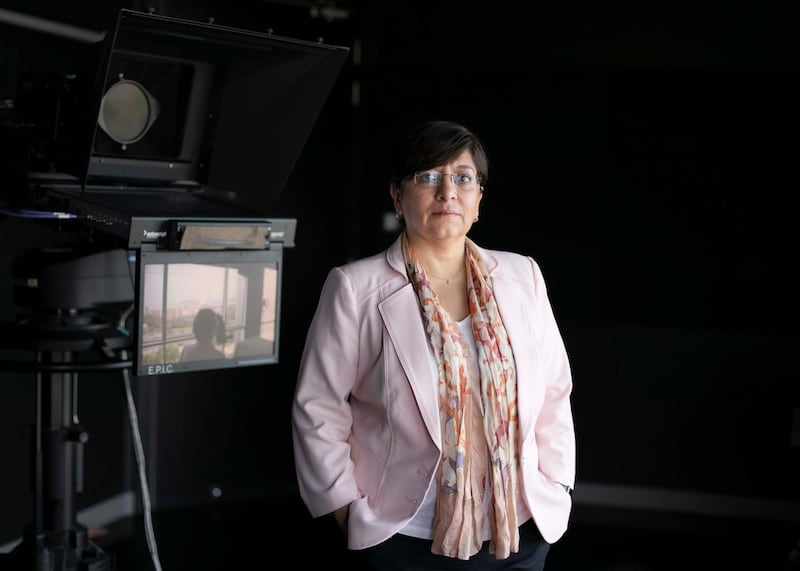It is not only the view from Caroline Faraj's office window, overlooking The Palm Jumeirah, that has changed beyond all recognition since CNN opened its Dubai bureau in 2002.
Back then, Facebook and Twitter – platforms that would fundamentally reshape journalism and the media – did not exist and the Second Gulf War was more than a year away.
The beginning of the Arab uprisings in 2010, another event that was to have far-reaching repercussions in Egypt and elsewhere, was also a long way off.
But Faraj is used to embracing change. When she moved to the UAE from her native Jordan to run CNN's new Arabic venture as editor, she found herself in charge of a team of just four. Today, CNN employs nearly 100 people in the UAE, having opened an Abu Dhabi bureau in 2009.
Its journalists cover stories from across the region.
"When I started this operation 18 years ago, at the opening, the [CNN] president at the time said 'I have made it very clear to Caroline that if there is anyone interfering in her work she should take her staff and leave'," said Faraj.
“I didn’t take my staff – that means no one is interfering.
“Editorially, we do not change our position.”
Early in her time with CNN, Faraj recalls how a university she was advising refused to allow its journalism students to produce an internal newspaper. It was only after she appealed to a high-level contact who intervened that the publication was eventually allowed.
Her anecdote shows how much things have changed, with journalism courses now equipping students with a range of practical storytelling skills.
Challenges remain, however. Faraj, who lives in Dubai with husband Carsten, said she was concerned that many young people who relied heavily on the internet were susceptible to fake news.
One of CNN Arabic's current projects is a drive to promote awareness of disinformation among young Arabs. At the invitation of Sharjah Press Club, the American network helped give 10 to 17-year-old people in the emirate a basic introduction to journalism and offered them tips to spot fabricated stories.
It proved a big success, with CNN now keen on expanding the idea.
"Our bread and butter is telling the truth," Faraj said.
“I believe [fake news] is more alarming here because ... there’s a new opening up, if you like, in terms of news to the people.
“They have more appetite to know more but not everybody is taking enough time to consider whether this is fake or not. They take it as is, and spread it, share it.
“But I’m very optimistic when it comes to how smart the younger generation are. Yes, they pick and choose whatever they want, but they will stay with whatever they trust. Nowadays, we have lots of offerings in the market, but at the same time we are still No 1.”
Although CNN was first in the UAE, a series of competitors have arrived since.
RT and Sputnik, Russian stations that, unlike CNN, are government-funded, have invested heavily in Arabic content. The BBC set up an Arabic news channel in 2008, with broadcaster France 24 also now offering Arabic content.
But Faraj's claim to be ahead of the competition is backed up by numbers – CNN Arabic's main Twitter account has about 11 million followers, almost twice as many as the BBC's Arabic account and nearly three times more than RT's four million.
She said that internal audience targets are being exceeded threefold, and revenue is extremely healthy.
A long-running internship programme is, she believes, helping to develop media institutions in the region.
More than 100 young journalists have passed through the programme in Dubai, with initiatives also running in Saudi Arabia, Kuwait and Jordan.







